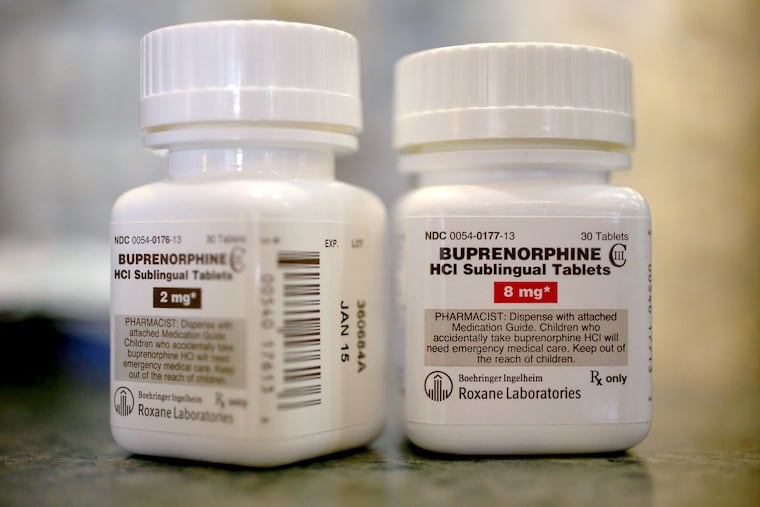In the midst of opioid crisis, Harrisburg dismisses evidence on treatment | Editorial
At the heart of the bill is the false notion that treating addiction with medication only replaces one drug with another.

A recent study found that Pennsylvania has the third highest overdose death rate in the country in 2017, the last year with full data. One would think that this statistic would spur lawmakers to find solutions for the overdose crisis, specifically with evidence-backed solutions. Instead, an overwhelming bipartisan majority (41-9) of state senators voted last week to advance two bills that would make it harder to get medications for assisted treatment (MAT), the gold standard treatment for opioid addiction in Pennsylvania.
“Gold standard” isn’t the opinion of the Editorial Board; it’s a common descriptor used by the scientific community, as well as the U.S. Surgeon General, for the use of such medications as methadone and buprenorphine (known by the brand name Suboxone) to treat opioid addiction.
MAT is already tightly regulated.
People in opioid addiction can only take methadone in a federally licensed clinic. To prescribe buprenorphine, physicians must undergo special training and obtain a waiver from the Drug Enforcement Administration. There is a national movement pushing to make it easier to prescribe buprenorphine as a response to the opioid crisis. In Pennsylvania, lawmakers hope to require physicians who want to prescribe buprenorphine to meet another hurdle — a $500 annual fee. The bill was introduced by Michele Brooks (R., Erie). She introduced a similar bill last year but that effort failed.
Proponents of the bill point out that misuse of diverted buprenorphine exists. While that’s true, buprenorphine overdose deaths are extremely rare. In 2016, buprenorphine was the cause of a single overdose out of 910 in Allegheny County. When fentanyl is a part of the drug supply all over the state, even diverted buprenorphine is a safer option.
At the heart of the bill is the false notion that treating addiction with medication only replaces one drug with another. Stigma is so pervasive that this notion deters people in addiction from seeking help — and perhaps explains why 1-in-4 treatment slots in Philadelphia are empty.
To destigmatize buprenorphine, in March, Philadelphia launched $200,000 in a public awareness campaign highlighting the stories of Philadelphians who used buprenorphine in their recovery from addiction. Expanding access to MAT also is one of the goals of Gov. Tom Wolf’s emergency declaration.
The Pennsylvania Medical Society and Pennsylvania Psychiatric Society oppose the bill. They argue that the goal of regulation, especially during a crisis, should be to remove barriers to treatment — not add new ones.
Another bill, this one originated from the House and is still in committee, imposes further requirements on patients who receive MAT — two and a half hours of behavioral therapy at a state-licensed center every month. That requirement goes against evidence from four randomized controlled trials that found no better outcomes when behavioral therapy was combined with medications. The bill would also make the default medication treatment temporary, requiring some patients to taper off. That’s like requiring people with diabetes to wean off insulin.
Our lawmakers should be guided by science, not stigma. The House should vote down both of these bills — and if they choose stigma over science, Gov. Wolf’s pen should be ready to veto them.